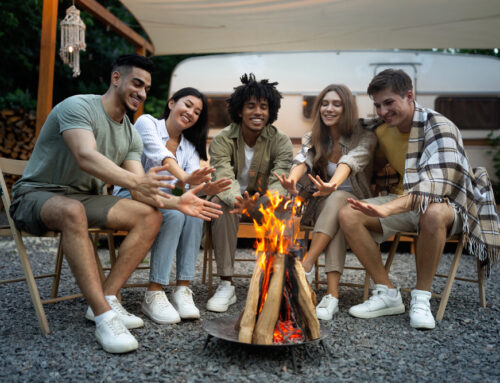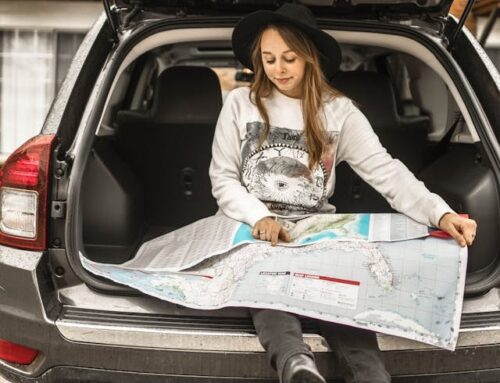How To Stay Safe And Healthy While Traveling in India
A Traveler’s Guide to on how to stay safe and healthy while traveling through India. It’s no secret that India is one of the most popular travel destinations in the world. In 2011 alone, 6.29 million foreign tourists visited the subcontinent according to the World Travel and Tourism Council. India is an especially popular travel destination among U.S. Americans who in fact comprise 16% of all foreign travelers.
Whether you intend to backpack through the country or stay at a luxurious resort at the beach, you should plan your trip in advance and take several precautions to remain safe and sound during your journey. These provisions concern your health, as well as your personal safety. While it’s crucial to protect yourself from possible diseases, your individual behavior matters, too, when it comes to travel safety.
Vaccines & Medicines For Travel To India
When you travel to South Asian countries like India, you ought to be prepared by being properly vaccinated. All travelers should have their routine vaccinations (including against measles-mumps-rubella, diphtheria-tetanus-pertussis, chickenpox, polio and the yearly flu-shot). You should also get vaccinations for Hepatitis A and Typhoid, as you can contract both through contaminated food or water. Depending on your destination, duration of your stay, activities or if you enter India from a country other than the US, you should consult with you doctor whether you need vaccination against Hepatitis B, Malaria, Japanese Encephalitis, Rabies or Yellow Fever.
Eating & Drinking Safely in India
Contaminated food and beverages can cause several health problems. In order to avoid those, stick to safe eating and drinking habits. Eat food that is cooked and served hot, fruits and vegetables that you have thoroughly washed and peeled yourself, as well as only hard-boiled eggs and pasteurized dairy products. Don’t eat anything served at room temperature, from street vendors, raw or runny eggs, raw or undercooked meat or fish, unwashed and unpeeled fruits or vegetables, unpasteurized dairy products or “bush meat” (monkeys, bats, etc.). Drink (sealed) bottled water, disinfected water, ice made with disinfected water, carbonated drinks, hot coffee or tea, and only pasteurized milk. Avoid tap / well water, ice made with tap / well water, beverages made with tap / well water (like juices), and pasteurized milk.
Preventing Bug Bites While Traveling in India
Bites by mosquitos, ticks or fleas can spread a number of diseases in India. While many of these illnesses cannot be prevented by a vaccine or medicine, you can still reduce the risk of contracting something by taking a few precautions. Cover exposed skin like on arms, legs or face by wearing long-sleeved shirts, long pants and hats. If possible, wear permethrin-treated clothing and gear (such as boots, pants, socks, and tents). However, you should never apply permethrin directly to the skin. At night, sleep in a room that is air-conditioned and has screened windows / doors. If that’s not available, use a bed net. Furthermore, use insect-repellants that contain 20% or more DEET against ticks and mosquitos or with Picardin, oil of lemon eucalyptus (OLE) / PMD or IR3535 against mosquitos only. Always check your entire body after an outdoor activity for ticks and remove them properly. If you get bitten by bugs, void scratching the affected area and apply hydrocortisone cream or calamine lotion to reduce the itch.
Avoiding Feral and Wild Animals in India
Rabies still is a problem in some parts of India. While most animals avoid people, they might attack if they feel threatened, protective of their young or territory or if injured / ill /hungry. To protect yourself, don’t feed any unknown animals and don’t let them lick you, especially not open wounds, eyes or mouth. Stay away from monkeys, feral dogs, bats, as well as rodents and their feces. Also, be very careful around sea animals like jellyfish and reptiles such as snakes. If you are bitten or scratched by an animal, immediately clean the wound with soap and water, see a local doctor and tell your doctor about it at home. In addition, if you wake up in a room with a bat, seek medical care promptly as bat bites might be hard to detect. If you travel to an area that is known for its rabies problem or expect to me in close contact with numerous animals, you should get a rabies vaccination and consider buying medical evacuation insurance. Rabies is a deadly disease that must be treated quickly and proper treatment might not be available everywhere.
Exposure to Germs and Body Fluids While Traveling in India
Deficient hygiene or negligence can get you sick or spread illness to others. In order to reduce your exposure to germs, wash your hands frequently (especially before eating) or use hand sanitizer if water and soap are unavailable. Moreover, avoid touching your eyes, nose or mouth. Do so only if your hands are clean. When you sneeze or cough, cover your nose and mouth with a tissue or your sleeve. Also, avoid people who are sick and if you’re sick, stay at home in your hotel. Exposure to body fluids like saliva, blood, vomit or semen can cause you to contract venereal diseases or an HIV infection. Protect yourself by (properly) using latex condoms, not injecting any drugs, and generally avoiding (excessive) drug or alcohol consumption as intoxicated people take more risks. Don’t share needles or any other devices that break the skin, for example, needles for tattoos, popular henna tattoos, piercings or acupuncture. If you receive any medical or dental care, make sure the equipment is disinfected or sanitized.
Transportation Precautions in India
India is quite notorious for its chaotic traffic. As a matter of fact, motor vehicle crashes are the #1 killer of (healthy) US citizens abroad. Be aware that in many places in India, cars, buses, trucks, rickshaws, bikes, pedestrians, and even animals share the same streets and lanes. As a pedestrian, always use sidewalks and marked crosswalks if possible and pay close attention to the traffic surrounding you (particularly in congested areas). Remember that pedestrians don’t always have the right of the way in some parts. When it comes to using public transportation, make sure you ride with official taxis and government-owned trains / buses. Try to avoid overcrowded, overloaded, top-heavy buses and minivans. By all means, avoid riding on motorcycles, motorbikes or motorbike taxis, as most crashes are caused by inexperienced drivers and are especially fatal due to a lack of protection. If you drive a vehicle, chose a newer one that has safety features like seatbelts and airbags. A larger car may also provide more protection in the case of a crash. Be mindful when it comes to choosing your driver: this person shouldn’t be intoxicated and ideally licensed and / or trained. Negotiate payment before departing. Other safety measure include wearing a seatbelt at all times, sitting in the back seat of cars / taxis, wearing a helmet when on motorcycles or motorbikes, avoiding driving at night (especially in rural / poorer areas), familiarizing yourself with local traffic laws, and obtain necessary driving permits or insurance. Air travel these days is pretty safe, but you should still stick to some safety provisions. Don’t use local and unscheduled aircrafts, avoid small planes, as they’re less likely to be inspected regularly, and try to schedule flights during daylight hours and good weather.
Protecting Your Personal Safety While Traveling in India
First of all, no matter to which country you travel, you should always use common sense and remain alert and aware of your surroundings. General safety advice includes researching your destination, monitoring travel warnings, notifying someone at home about your itinerary and contact information, carrying (and emailing yourself) copies of your identification documents, as well as packing as light as possible and avoiding bringing unnecessary valuables. You may also want to consider having the contact information of the closest U.S. embassy or consulate on hand. Leave your passport securely at the hotel and carry a photocopy and /or a less important ID with you. Obey local laws and follow social customs (these might in fact vary greatly in India). Don’t wear expensive clothes or jewelry or carry pricey electronic equipment with you. Always lock your room at night and when you leave. Many places in India are very crowded, which is ideal for pickpockets. If you can’t leave your valuables in your hotel, use a money belt and / or keep money and credit cards in different places (that aren’t easily accessible) close to your body. While armed robberies are rare in India, you might still catch thieves trying to snatch your bag / purse/ backpack or going through your belongings in your room. Unless totally unavoidable, stay away from any confrontation that might have dire consequences. Recently, a number of horrifying cases of sexual assault in India have garnered the international media’s attention. Sexual harassment is unfortunately rampant in many parts of India. Thus, while female travelers have a right to explore the country safely, they ought to prevent putting themselves into a vulnerable position. They should take extra precautions when travelling alone by staying away from remote, rural areas, moving mainly during daylight hours, and staying clear of alcohol and drugs.
To call for emergency services while in India, dial 100 or, from a mobile phone, 112 (memorize or write these numbers down).
************************************************
About The Author: Sandra Mills is a freelance health, tech, and travel writer. She is looking to do more traveling and exploring in the near future.
*************************************************
Photo Source: Wikimedia Commons





